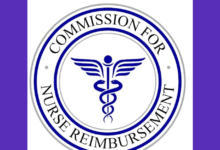Children’s hospital appoints lead sepsis nurse after boy’s death

A children’s hospital has appointed its first lead sepsis nurse, following the death of a 16-month-old boy who was misdiagnosed with chickenpox.
Emma Nicholson has taken on the new role at Sheffield Children’s NHS Foundation Trust, where she will provide training to staff to support them to detect and treat cases of sepsis as quickly as possible.
“Sepsis isn’t going to go anywhere, it’s such a big killer that [this role] needs to continue”
Helen Philliskirk
Ms Nicholson started the temporary role in November and works one day a week in the post alongside her existing job on a surgical ward at the hospital.
She told Nursing Times that she wanted to “raise awareness” of the importance of early recognition of sepsis, timely management and early escalation of the condition.
“Every time you see a child, it’s an opportunity to assess them,” she said.
Ms Nicholson said her seven years on the surgical ward has given her clinical experience in this area, as she often deals with patients who have sepsis.
She said: “I’ve seen firsthand how subtle the signs [are], that we can then pick up on early to get the treatment early.
“I’ve also seen the importance through that of communicating with parents.”
The need for a lead sepsis nurse at the trust was identified as one of the actions that needed to be taken following an inquest into the death of 16-month-old James Philliskirk.
James was taken to Sheffield Children’s Hospital in May 2022 when he started showing symptoms that worried his parents, including groaning noises, a fever, high heart rate, skin lesions and refusing food.
During the visit, hospital nurses and doctors ignored his parents’ concerns that he was suffering from a serious illness and insisted that he just had chickenpox.
James was sent home but his condition failed to improve, and he died just 32 hours later at home.
An inquest into James’s death found that, instead of chickenpox, he had been battling sepsis which had been brought on by a severe group A strep skin infection.
The jury concluded that his death was contributed to by neglect at the hospital.
Ms Nicholson said she had spoken with James’s parents about work that needed to be prioritised to improve the way that the trust dealt with sepsis in the future.
She told Nursing Times that, currently, she is helping the trust to introduce new sepsis guidelines to support staff to screen patients as quickly as possible.
In addition, she is supporting the introduction of new sepsis champions across different wards at the hospital.
“We’re trying to arrange a training morning for them, which will include education from myself,” Ms Nicholson noted.
“There’s lots going on in the background, it’s just getting things into place at the moment.”
Going forwards, Ms Nicholson said she hoped her role would become more clinical and that eventually she could be the person to “identify sepsis patients, go down and speak to their families and offer the nurses support”.

James Philliskirk
James’s mother Helen Philliskirk was involved in the interview process for the lead sepsis nurse and welcomed Ms Nicholson’s appointment.
She told Nursing Times that she had been in discussions with the trust about making the role permanent.
Ms Philliskirk said: “It’s wonderful what they’ve done and we’re so appreciative that they’re using James’s legacy to push forward on this.
“But I don’t want her tole to finish at the end of the temporary contract and then that’s it…and everyone moves on.
“Sepsis isn’t going to go anywhere, it’s such a big killer that [this role] needs to continue.”
Reflecting on her experience at the hospital, Ms Philliskirk said that every time she had raised concerns to clinicians about James’ deteriorating condition, she was “completely dismissed”.
“It wasn’t the experience that you would expect from a hospital,” she explained.
“For the triage nurse to be so blinkered and not listening [and] both the doctors to completely shut us down, almost made us query our comments.”
The UK government committed last year to introducing a new law which will give patients and their families the power to request a clinical review if they feel their concerns are ignored.
Martha’s Rule is set to empower loved ones to formally request a review of the patient’s case by a senior nurse or doctor.
The rule is named after 13-year-old Martha Mills, who died of sepsis after concerns by her parents were ignored.
Ms Philliskirk, who said she had been in contact with the Mills family, called for Martha’s Rule to be implemented “right now”.
She said: “The timing is critical, let’s get on with it.
“The campaign that’s running is absolutely fantastic and we wholeheartedly support that.”
Alongside the creation of a lead sepsis nurse, Sheffield Children’s NHS Foundation Trust has also introduced several other measures to ensure that deaths like James’s can be prevented in the future.
The trust has established a parent and carer escalation (PaCE) process, which empowers patients and carers to escalate their concerns if they feel they are not being listened to.
Meanwhile, it has also implemented new processes to share learning from patient safety incidents and complaints more effectively.
In addition, the executive team and trust board will now hear directly from families about their lived experiences of services, including what went well and what the trust could have done better.
Yvonne Millard, chief nurse at Sheffield Children’s NHS Foundation Trust, said: “At Sheffield Children’s we are committed to doing everything we can to make sure parents and carers concerns are listened to and taken more seriously than in the past.
“A critical part of our care for children and young people must be listening to their parents, carers and families, as those who know them the best.
“This listening is crucial alongside the early detection of sepsis and highlighting the importance of timely treatment.
“In addition to the creation of the sepsis lead nurse role we have put in place a number of other actions to minimise the chances of other parents and loved ones having to suffer the loss that James’s parents have.”







